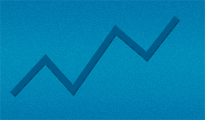Ladies and Gentlemen:
The business year 2020/21 was affected by an economic meltdown of historic proportions that was triggered by the outbreak of the COVID-19 pandemic. Almost all of voestalpine’s customer segments experienced a massive downturn in demand during the business year’s first quarter. The Group reacted rapidly and counteracted the crisis through capacity adjustments, short time work, and comprehensive cost-cutting measures.
However, the economic effects are but a consequence of the crisis, which was and still is primarily a health crisis. Hence all of the steps we took gave highest priority to the safety and health of all of the Group’s employees. Comprehensive hygiene and safety measures were put in place Group-wide from the onset of the pandemic, and employees were asked to work from home as far as possible. Thanks to the dedication and flexibility of our workforce, the company succeeded in maintaining production during this challenging time, thus assuring its ability to make deliveries to its customers. We want to express our sincere thanks to all employees worldwide for that.
China overcame the pandemic faster than all other countries. Because voestalpine’s plants in China already returned to normal capacity utilization early in the reporting period, they were able in part to offset the meltdowns in other markets. Europe’s productive sector began to see the first signs of a recovery over the Northern summer of 2020. The automotive industry rebounded from its COVID-19-induced low surprisingly soon, causing a pronounced increase in demand for high-quality steel products. In turn, this benefited especially the Steel Division, which saw record capacity utilization at its key production plants in the second half of the business year 2020/21. Two of the Group’s key markets—North America and Brazil—stabilized as well.
But the aerospace industry and the oil & natural gas industries were hit particularly hard by the crisis. Owing to the changed market environment, capacity adjustments were absolutely necessary in the affected voestalpine Group companies. The Railway Systems and Warehouse & Rack Solutions business segments, by contrast, delivered stable performance throughout the business year ended. Thanks to the boom in online commerce, the storage technology segment actually posted an all-time high in orders. voestalpine’s broad positioning—both regionally and technologically—thus turned out to be an important factor in the Group’s success and stability.
Along with the economic tailwind that began in the middle of the reporting period, the internal measures aimed at lowering costs and boosting efficiency were decisive to the Group’s positive results for the business year 2020/21. At the time of writing, voestalpine boasts higher liquidity and lower liabilities than just a year ago despite the economic crisis. The company’s consistent working capital management is reflected in its free cash flow (FCF) of more than EUR 1 billion, which lowered the gearing ratio from 67.2% to 48.5%. At approximately EUR 1.1 billion, the operating result (EBITDA) saw a substantial improvement over and above the forecasts at the start of the reporting period. Given these results, the Management Board proposes to pay a dividend of EUR 0.50 per share for the business year 2020/21.
The strengths of voestalpine’s business model were on full display during the COVID-19 crisis yet again. Hence we will continue to focus on high-tech segments that meet highest quality standards and develop innovations in collaboration with our customers. As before, the stated goal is to continue driving the company’s value-added growth. The issue of sustainability has become an important topic. voestalpine is committed to the climate goals and has submitted a clear plan for decarbonizing the production of steel through its “greentec steel” program. In a first step, the partial shift from the coal-based blast furnace route to electric arc technology is designed to bring about a reduction in CO2 by about 30% through to the year 2030. The Group aims to achieve climate-neutral steelmaking by 2050 using both green electricity and green hydrogen. It is clear that this transformation must be economically viable.
The current economic environment does allow us to look to the business year 2021/22 with optimism. The greater the number of people worldwide being given effective vaccines against the COVID-19 virus, the sooner the economic development worldwide will gather speed. voestalpine is ideally positioned—strategically and technologically as well as with respect to its highly qualified and motivated workforce—to exploit this dynamic.
Linz, May 31, 2021
The Management Board
Herbert Eibensteiner
Franz Kainersdorfer
Robert Ottel
This report is a translation of the original German-language report, which is solely valid.
- From investing activities: outflow/inflow of liquid assets from investments/disinvestments;
- From operating activities: outflow/inflow of liquid assets not affected by investment, disinvestment, or financing activities.
- From financing activities: outflow/inflow of liquid assets from capital expenditures and capital contributions.


